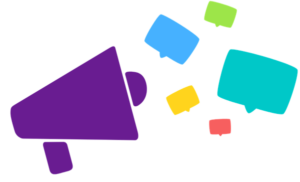
The consistent use of adverts and videos/pictures of friends, influencers, and celebrities can negatively impact body image. They often set a standard or stereotype of an ideal. For females, this ideal can be thin, and for males muscular.

In addition, many social media channels abundantly portray food and matters around food. They will post many articles on exercise and some may encourage negative behaviours as well. Some individuals also misuse health sites and health apps to overcontrol their eating or eating-related behaviour.
Some tips:
- Use social media carefully and minimally if you have an eating disorder.
- Be aware that social media portrays unrealistic perceptions of body image, often using filters or photo editing.
- Try not to get involved in discussions about eating or body shapes when online.
- Consider unfollowing or muting social media accounts that cause you to feel bad about how you look.
- Make sure you balance virtual with real-life connections.
Notice the impact of being online on how you feel. If you feel negative about yourself or your body, if social media makes you feel excluded, drives you to feel hungry, or promotes negative behaviours, then take steps to safeguard yourself by having breaks or being picky about what you engage with.


